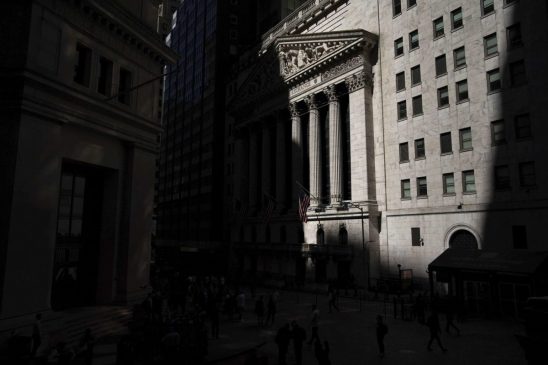- The world’s longest-running bull market officially ended Monday. Malaysia’s stock market benchmark is more than 20% off its highs.
- The FTSE Bursa Malaysia KLCI Index went 12 years without a 20% pullback from any peak. But that ended today.
- The milestone is an omen for the U.S. stock market.
Malaysia’s stock market enjoyed the world’s longest bull run for 12 years running.
Until Monday.
The FTSE Bursa Malaysia KLCI Index’s 2.69% decline unraveled the record streak. It’s a bad omen for the rest of the world’s stock markets, and U.S. investors shouldn’t ignore it.
Stock Market Bull Run Ends In Malaysia
The FBM KLCI is a market capitalization-weighted stock market index composed of the country’s 30 largest companies. It’s a bit like the S&P 500 of Malaysia.
Its winning streak started in 2008 as the Southeast Asian nation’s economy emerged from the global recession.
The index went 12 years without a 20% pullback – the technical beginning of a bear market.
But amid global panic and uncertainty Monday, the good times came to an end with a 21% drop from its all-time peak.
Why the U.S. Stock Market May Be Next
Singapore’s Strait Times Index (STI) closed 1.22% lower Monday. South Korea’s Kospi Index dove 3.87% as coronavirus cases swelled in Asia’s fourth-largest economy. But Asian markets aren’t the only places feeling the pain.
The U.S. stock market endured its worst plunge in two years, with the Dow Jones Industrial Average (DJIA) crashing by 1,031.61 points or 3.56% by the time the closing bell rung. The bloodbath more than eliminated all of the Dow’s 2020 gains.
Monday’s downturn may just be the beginning.
Coronavirus and political uncertainty – the same factors at play in Malaysia’s downturn – threaten to bring the U.S. stock market bull run to an end in 2020 as well.
Coronavirus & Political Turmoil Give Investors an ‘Escape Hatch’
At the end of January, multiple analysts warned coronavirus would make a good excuse for investors to flee an overheated market. But the pandemic isn’t the only headwind that has finally made the euphoric outlook untenable.
A succession crisis in Malaysia’s parliamentary government was the final straw that sent the FBM KLCI swooning. And there may be political turmoil looming for U.S. markets next.
In a presidential election year with a socialist in the lead for the Democratic party’s nomination, U.S. investors can’t ignore the threat of political uncertainty.
Billionaire investor and Omega Advisors founder Leon Cooperman said last week that Bernie Sanders is a bigger threat to the stock market than coronavirus. That was a few days after former Goldman Sachs CEO Lloyd Blankfein said Sanders would “ruin our economy.”
Even mainstream Democrats are worried, while former White House Press Secretary Sarah Huckabee Sanders cautioned Republicans not to underestimate Bernie Sanders. After the senator from Vermont’s decisive win in Nevada, his frontrunner status is unquestionable.
It’s an aphorism that markets abhor uncertainty. And the U.S. stock market is ripe for a correction after an 11-year bull run.
Its previous record was nine-years, five months during the roaring 90s. That bull run finally ended when frothy share prices fizzled out amid 2000’s own set of political and corporate uncertainties.
Disclaimer: This article represents the author’s opinion and should not be considered investment or trading advice from CCN.com.
This article was edited by Josiah Wilmoth.




